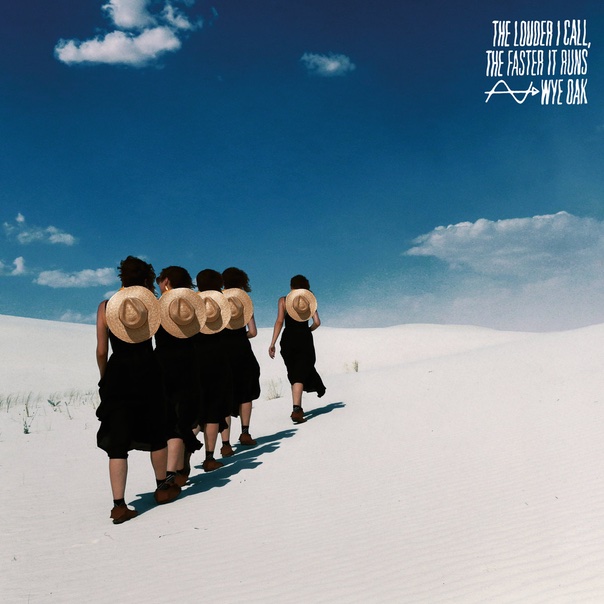ALBUM REVIEW: Wye Oak branches out with The Louder I Call…

Electronic duo Wye Oak has spent 12 years refining the its sweeping approach to indie folk. Its pleasant melodies, open chord progressions and dynamic shifts always kept one foot in staunch experimentalism.
A willingness to incorporate electronics and ambiance into its style now gives the new album’s bold synthetic explorations a distinct advantage. Wye Oak capitalizes on its ongoing relationship with dream pop and noisy ambiance, allowing The Louder I Call, the Faster It Runs to transcend trends with intuitive production and undeniable chops.
The Louder I Call, the Faster It Runs
Wye Oak
April 6
While the swelling bass and trickling high-end synths of opening track “The Instrument” can merit comparisons to the likes of Imagine Dragons and The 1975, Andy Stack’s constant stream of syncopation allows vocalist Jenn Wasner’s voice to raise Wye Oak’s sound above tired methods. Real instruments fade into the mix, but the duo’s understanding of such things soothes The Louder I Call’s stylistic transition. The title track furthers this point with its vaguely Caribbean support for Wasner’s angelic harmonies. As she soars over expertly layered synth lines, Wye Oak’s aura remains as other-worldly as it is catchy.
Rather than settling for gimmicks, The Louder I Call uses robust instrumentation to create arresting arrangements. “Lifer” beautifully capitalizes on this dynamic potential, as its mathy beat propels glacial ambiance and seismic swells into a shoegaze guitar solo on par with the greats. Even within such immensity, the album’s enlightening themes manifest as Wasner sings of the duality between boundless knowledge and physical limitations, “I am not old but I’ve become/ Afraid of things I never was/ And stumbling on without a pause/ Can only go so long.”
The steady half-time of “It Was Not Natural” indulges a deliciously melodic bass line, carrying Coldplay-esque piano chords as electronics accentuate dynamic shifts. Stack’s beat remains intact as synth layerings inflate the chorus to spectacular proportions. He even implemented a reverse effect into his Steve Jordan-style groove solo as the perfect curveball to match the track’s diverse sonic tapestry. In fact, his playing becomes the unspoken hero of the album, displaying unprecedented musicality in cuts like “Symmetry”—knowing exactly how to juggle goth pop aura and electro funk rhythm changes. The Louder I Call’s evocative performances take hold on its initial experimentalism, but the string arrangements of interlude “My Signal” usher in the second half’s more familiar instrumentation.
“Say Hello” hints at traditional indie rock with its percussion, vocal harmonies and distorted guitar chords, but it soon whisks into enveloping noise pop, with vocoders integrating voice and keyboard in harmonious polyphony. The bouncy “Over and Over” continues this vein, taking on a more guitar-oriented style that of their previous efforts.
Electronics don’t dominate like they did before, but take over at the end in order to set up the reverb-soaked dream pop of “You of All People.” Stack’s use of a Latin triangle pattern imparts a tribal feel as Wasner’s spiraling melodies plunge into a sea of staccato synth and dainty piano arpeggios.
The album’s final tracks see Wye Oak’s expansivity dissipate, as the bluegrass arrangement of “Join” utilizes nuanced electronics and echoing subdivisions to keep its progression away from convention. It’s certainly less intrepid than what started the album, but taking away the electronics leaves a solid folk song in its own right. Involved production serves to hoist the familiar above the boring, keeping the album fresh from beginning to concluding track, “I Know It’s Real.”
The album’s end arrives with surprisingly heavy rock balladry, complete with euphonic vocal phrases, spirited drum cadences and absorbing atmosphere. The album gradually settles into amicable territory, but the duo has never been content to simply play their songs—intuitively embellishing their songs at every opportunity. Wye Oak’s tasteful ornamentations reach new heights in The Louder I Call, making it a genuine step forward for the band both in sonics and songwriting.
Follow writer Max Heilman at Twitter.com/madmaxx1995.
